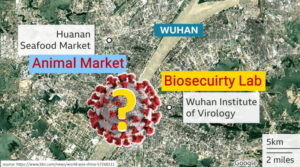Congress to Strengthen Global Health led by Germany
On May 1, 2019, the leaders of Germany's two conservative parties, the CDU and the CSU, pledged to stick together after a year of public discord, then 7 days later on May 8, 2019, at a "top-class congress", the CDU/CSU parliamentary group met in the Bundestag with invited guests to discuss the topic "Strengthening global health - implementing the UN Sustainable Development Goal". In attendance was German Chancellor Angela Merkel, WHO's director general Tedros Adhanom Ghebreyesus, and members of the Global Health subcommittee represented by Gates Foundation, Christian Drosten, Wellcome Trust's Jeremy Farrar and the 2017 founder of the Center for Global Health Prof. Dr. Clarissa Prazeres da Costa. [1, 2, 3, 4] [NOTES] Germany has taken on a pioneering lead role in "developing a strategy for global health, and the World Health Organization (WHO) is working on an action plan." "With its G20 presidency, Germany has put global health on the international agenda."..."I think it’s fair to say that Germany is one of WHO’s greatest supporters and best friends." Tedros said. Tedros will present the Global Health The Plan to Nations General Assembly in September 2019! At the meeting Ilona Kickbusch warned of "thinking in national units or in..> READ MORE

